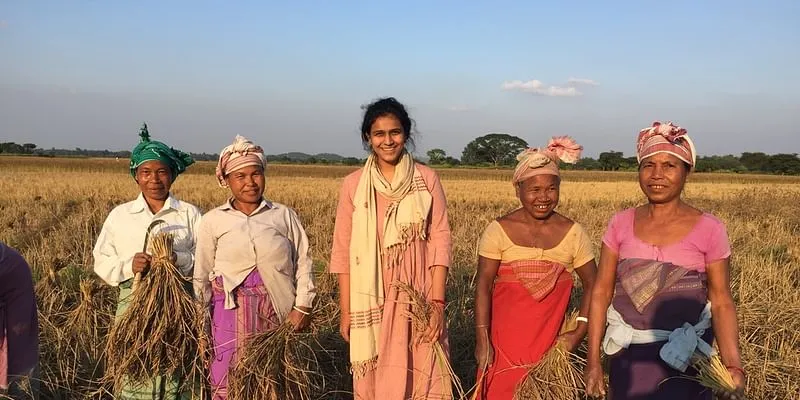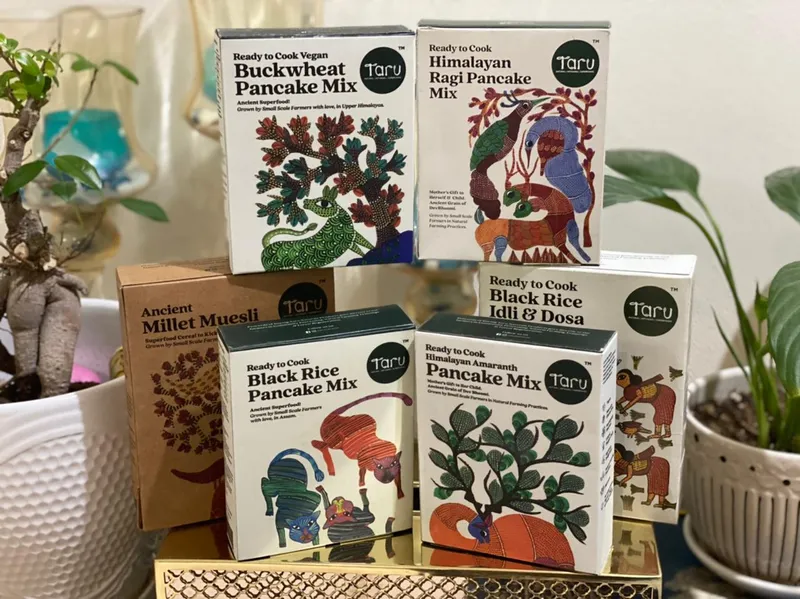How this SMB bagged a UN award with its vision to help farmers become small-scale entrepreneurs
Mumbai-based organic food enterprise Taru Naturals was started in 2016 by Ruchi Jain. The brand today supports over 10,000 tribal and small-scale farmers across India.
A grassroots movement of 10,000 tribal and small-scale farmers across India, Taru Naturals, was recently among 50 small and medium enterprises (SMEs) from the world over to clinch the ‘Best Small Businesses’ award in the “Good Food for All” competition held in conjunction with the UN Food Systems Summit.
Mumbai-based Taru Naturals was started by Ruchi Jain in 2016. “It's an honour, and it was such a good experience to be speaking to so many young entrepreneurs across the world,” recalls Ruchi in a conversation with SMBStory.
She shares that interacting with entrepreneurs across the world made her realise that founders everywhere go through the same issues and predicaments, including developing the right product, market fit or even zeroing in on a successful social media strategy.
Talking about the competition, Ruchi says, it was her larger vision for the community and the whole ecosystem that clicked with the jury members.
“My vision is to enable small-scale farmers to graduate to small business entrepreneurs, and this is what I explained in my application as well.”
To that extent, what Taru Naturals does is work with small-scale farmers by encouraging climate resilient agriculture, and providing organic farming training. It also sets up supply chains with market intelligence, provides clean tech value addition processing units, and ensures fair-trade market ready products for end consumers, sourced directly from small-scale farmers.
The business, which started with selling jaggery, today manufactures and sells a host of products like turmeric, pulses, spices, nuts, seeds, oils, khapli wheat flour, sourdough flour, black rice, etc. These products are manufactured in the company’s own unit in Mumbai itself. The company currently has a team size of 10.
Some other aspects that Taru Naturals is working on is agroforestry, and ecosystem restoration. “We encourage all our farmers to grow fruit trees. It is important to grow enough trees so that the farmers have enough markets to survive,” adds Ruchi.
Natural farming is another focus area for the company, and ensuring that quality products come through. “It is very important for our farmers to go through natural farming training programmes because then we know that the quality of the product is aligned to what we are expecting.”
The training sessions educate the farmers on everything - from which seeds to use to the processes that need to be deployed for growing different crops.
Taru Naturals today supports over 10,000 tribal and small-scale farmers across India.

The back story
Ruchi was always inclined towards the environment. Her mother, Poonam Jain, an expert in naturopathy, and co-founder of the company, brought up Ruchi with the values of co-living with nature.
Earlier in her career, after working with several NGOs, Ruchi worked with the Ministry of Renewable Energy for a rural electrification project funded by the World Bank between 2012 and 2014. During these stints, she realised there was a disconnect between the farmers and the market.
“My biggest learning from the development sector was that farmers need to be nurtured and mentored to run the agro-business ecosystem smoothly.”
This compelled Ruchi to quit her job in 2014, and start Taru Naturals in 2016. The startup was bootstrapped until it raised $12,000 from Power Accelerator in 2019 and 2020. The company also raised a seed round from family and friends recently.

Revamping into a D2C brand
Ruchi remarks that currently, the company is undergoing a revamp to relaunch itself in the market as a D2C brand. At present, its products are available in around 20 outlets in India, and on ecommerce platforms such as Amazon. Taru Naturals also exports to the US, and recently got launched as a brand in Dubai. Going forward, Ruchi also plans to launch in Singapore, and get listed on more marketplaces.
According to her, the major focus of the brand now is to increase traction on its website.
“We connected with rural artisans to make paintings for each of our packages. Moreover, each package has a QR Code, and it can be traced on the blockchain,” she adds.
On immediate goals, Ruchi says the brand plans to focus on categories for the next 18 months, beginning with its breakfast mixes specially designed for mothers who want to serve “healthy pancakes to their kids.”
In its announcement about the competition winners, the UN said each winner of the competition was selected for how their business contributes to healthier, more sustainable, and equitable food for the communities they serve; the strength of their vision for the future; and how well they communicate the current and future impact of their business.
With Taru Naturals, Ruchi seems to have got them all right.
Edited by Anju Narayanan









